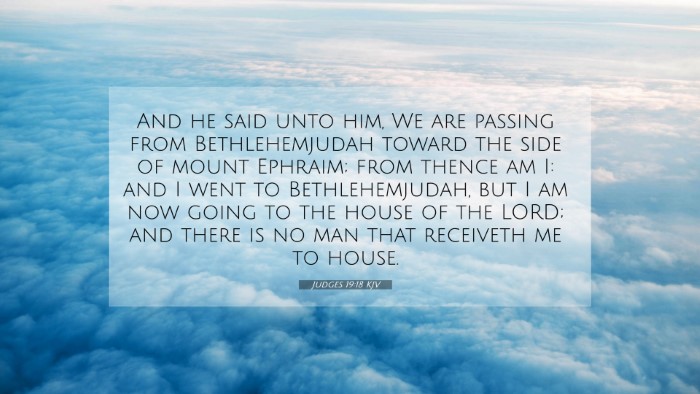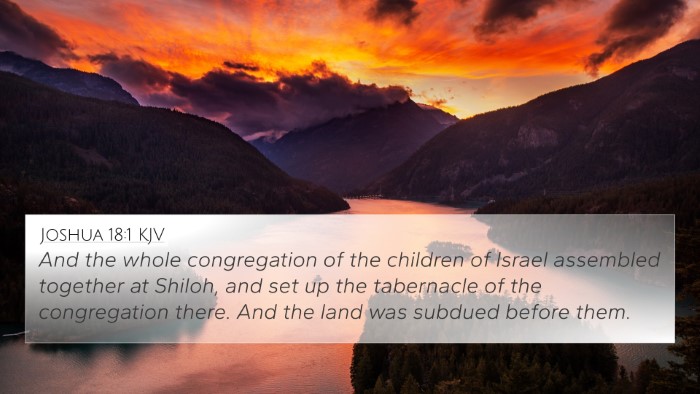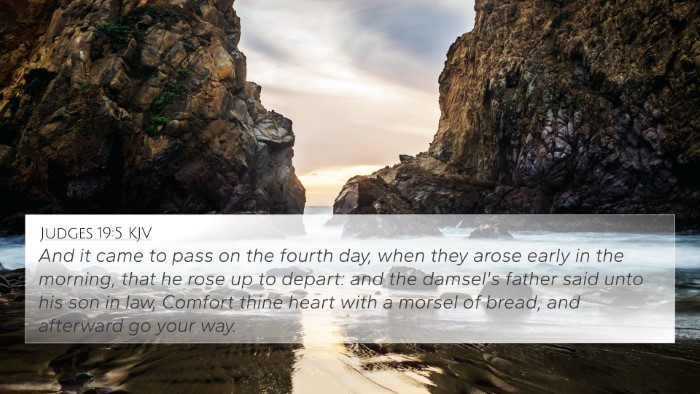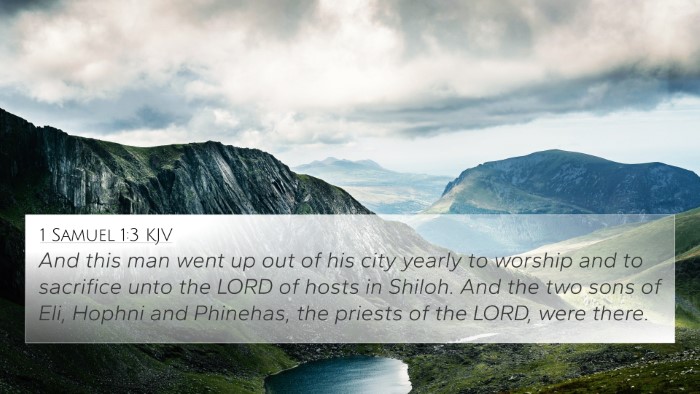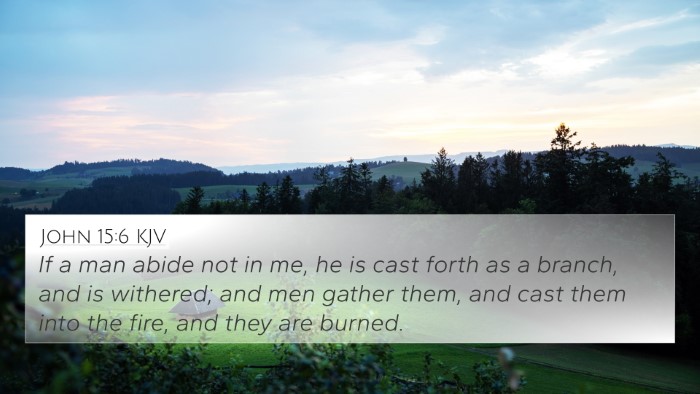Understanding Judges 19:18
Judges 19:18 states, "And he said unto him, We are passing from Bethlehem-judah toward the side of mount Ephraim; from thence am I: and I went to Bethlehem-judah to speak unto my family; but I am now returning to the house of the Lord: and there is no man that receiveth me to house."
Summary of the Context
This passage occurs in a time of declining morality and social chaos in Israel. The Levite, head of a fragmented household, speaks about his journey and searches for hospitality. The verse reflects the broader themes of loneliness, betrayal, and the quest for community.
Insights from Public Domain Commentaries
Matthew Henry's Commentary
Matthew Henry suggests that this verse highlights the Levite's acknowledgment of his desperate need for fellowship and safety as he journeys home. He notes the Levite's relationship with the people around him and emphasizes the absence of hospitality, a crucial social norm during this period.
Albert Barnes' Notes
Barnes points out the significance of the Levite's journey from Bethlehem and his desire to return to the 'house of the Lord.' His lack of reception underscores the spiritual degradation of Israel at that time. The very fact that he has to ask for hospitality shows a failure of communal responsibility.
Adam Clarke's Commentary
Adam Clarke draws attention to the implications of the Levite mentioning the house of the Lord, indicating a sense of divine order and expectations that have been abandoned by society. His commentary allows us to reflect on the negative societal changes that echo with the absence of hospitality and unity among God's people.
Thematic Connections and Cross-Referencing
- Genesis 19:1-3: The theme of hospitality is critical in comparison to Lot's experience. Both involve individuals being alone and seeking refuge in a corrupt environment.
- Luke 10:7: This New Testament verse emphasizes the importance of receiving guests, drawing a parallel between then and now in terms of hospitality.
- Matthew 25:35: The call to care for the stranger highlights the true intent behind hospitality, resonating with the Levite's dire situation.
- Hebrews 13:2: This verse reminds believers to show hospitality, encapsulating the moral expectation that was evidently lacking in Judges.
- Psalm 41:1: This encourages caring for those who are weak or in need, echoing the Levite's plight.
- Proverbs 14:20: Here, the emphasis on friendship and fellowship tells a story of relationship and acceptance that stands in stark contrast to the Levite's experience.
- James 2:15-16: Discusses faith and works, specifically relating to providing for the needs of others—similar to the Levite's loneliness during his journey.
Comparative Bible Verse Analysis
In analyzing Judges 19:18 alongside these references, we see a clear pattern: God's expectations for His people to uphold the structures of society—namely, care and community—are consistently violated. This can lead into a broader discussion on the thematic elements found throughout both the Old and New Testaments.
Tools and Methods for Bible Cross-Referencing
To deepen the understanding of cross-referencing in biblical texts, tools like a Bible concordance and a cross-reference Bible study guide can be invaluable. When studying scripture, one may ask:
- What verses connect to specific themes?
- How do Old and New Testament themes converse with one another?
- What parallels exist between the narratives found in the Prophets and the New Testament letters?
Long-Tail Keywords and Application
This passage can serve as a pivotal point for numerous thematic explorations:
- Finding Cross-References: Using tools can help answer questions like, What verses are related to Judges 19:18?
- Identifying Connections: How do Genesis and Matthew interpretations shed light on Judges 19:18?
- Comparative Studies: Insights into the differences in hospitality between various biblical accounts can enlighten our understanding of community obligations.
Conclusion
Judges 19:18 is not just a historical account, but also serves as a crucial point of reflection on community morality, hospitality, and divine expectations. This verse and its surrounding context ripple through biblical themes and societal norms even today, encouraging believers to seek connections and uphold the principles of care and community.


